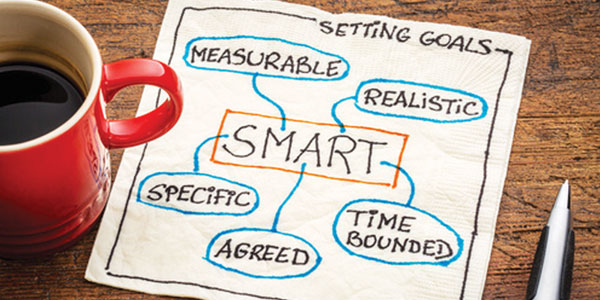 |
Recovering and Discovering, at |
|
So many people set grandiose goals that seem achievable on January 1st, but by the end of February are long forgotten and abandoned. In my opinion, as someone recovering from a mental illness, this process is demoralizing. Wanting to change for the better is great, but the best way to bring about lasting changes is to set reasonable goals. There’s actually an acronym for this in the business world – SMART; this stands for specific, measurable, achievable, realistic, and time-bound. For example, if you don’t typically exercise, your goal for the New Year shouldn’t be to exercise more or run 5 miles every day. The first is not specific and the second is not realistic. Instead, try phrasing your goal like this: I will create an exercise plan for the New Year so that I can work my way up to running 3 miles for 5 days per week by the end of March. This allows you to be more specific and realistic. In addition, setting your deadline for the end of March allows you to have an end-point in sight, which will keep you motivated throughout the next 3 months. • Write down 3 positive things at the end of • Allow at least 20 minutes each day to do Both of these goals are specific, measureable, achievable, and realistic. In addition, to ensure that they were time-bound, I made a calendar with weekly reminders to assess my progress. Part of my self-assessment involved thinking about my feelings and mood; that way, I was also working towards my over-arching goal of being happier. Finally, by tracking my progress, I was able to adjust my goals as needed. |
|









 Meagan Voulo graduated from Farmingdale State College in the spring of 2015 with a BS in Applied
Meagan Voulo graduated from Farmingdale State College in the spring of 2015 with a BS in Applied 


 20 lucky winners will win $500 each in prizes totaling $10,000.
20 lucky winners will win $500 each in prizes totaling $10,000. 